US Denies Iran-Backed Houthis Attacked USS Eisenhower in Red Sea
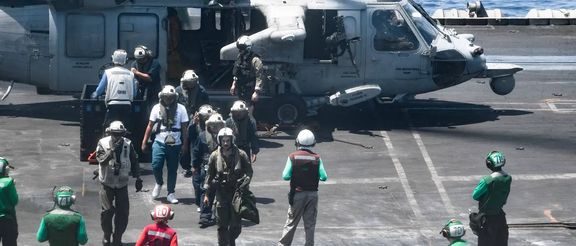
Yemen's Iran-backed Houthi rebels say they have attacked the US aircraft carrier USS Eisenhower in the Red Sea, but the US says the claim is false.

Yemen's Iran-backed Houthi rebels say they have attacked the US aircraft carrier USS Eisenhower in the Red Sea, but the US says the claim is false.
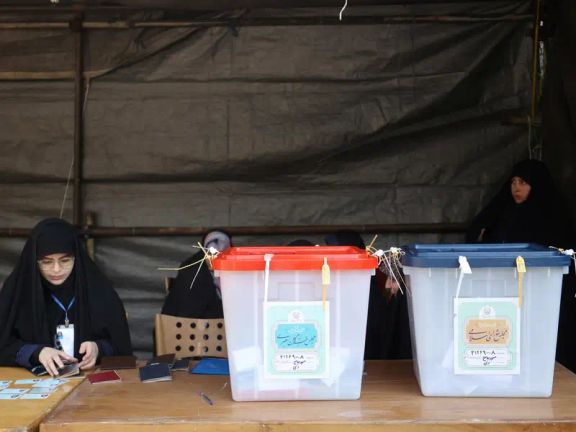
The Biden administration has once again permitted Iran's government to establish absentee ballot stations across the US for the upcoming Iranian presidential election on June 28.
The decision, first reported by the Voice of America, has sparked outrage among critics who view it as legitimizing the Islamic Republic’s "authoritarian rule".
Alireza Mahmoudi, an official from the Iranian Foreign Ministry, earlier confirmed plans to set up 30 voting locations, including at venues such as the Iranian Interests Section at the Pakistani embassy in Washington DC and a location in New York.
The move comes despite the US State Department’s acknowledgment that Iran’s elections are "neither free nor fair", as it only allows candidates loyal to Supreme Leader Ali Khamenei to run.
"Preposterous. The concept of a free and fair election under the Islamic Republic is a fallacy," said Iranian-British activist and actress Nazanin Boniadi.
"While regime opponents are advocating for a boycott, the US inexplicably permits absentee ballots for this farce?" she added in reaction to the Biden administration's decision.
The locations for these ballot stations have raised further concerns. In 2021, several US and British hotel properties and Islamic centers were used as polling stations, though there is no confirmation if these venues will be used again.
Critics, including Cameron Khansarinia, vice president of the National Union for Democracy in Iran (NUFDI), argue that those participating in and operating these stations should be “publicly shamed” for their role in supporting what many consider a “sham election”.

More than 500 teachers, union activists, and prominent cultural figures in Iran have publicly announced their decision to abstain from voting in the upcoming presidential elections through a joint statement.
In the statement the signatories asserted: "Participation in the elections, even under the assumption of a victory by a reformist candidate, is futile, offering no resolution to ongoing issues. Moreover, it risks bolstering [government's] legitimacy and intensifying suppression of dissent and protest. Therefore, we declare our refusal to partake in the presidential elections."
Six hand-picked insider politicians have been allowed to compete in the presidential vote. The president does not full power over many institutions and in key decisions, which are shaped by Supreme Leader Ali Khamenei.
The growing chorus of voices condemning the upcoming June 28 snap presidential election in Iran includes high-profile figures. Iranian Nobel Peace Prize laureate Narges Mohammadi has labeled it as a facade orchestrated by an oppressive regime.
From Evin Prison in Tehran, Mohammadi declared on Saturday, “I will not participate in the illegal elections of the oppressive and illegitimate government.”
Iranian female Islamic scholar Sedigheh Vasmaghi has separately announced that participating in the upcoming snap presidential elections would bolster the Islamic Republic's legitimacy.
In a statement on her Instagram account on Friday, Vasmaghi asserted, “When voter turnout is low, the ruling factions lose confidence, but high turnout empowers and validates them.”
“I consider the people's vote to be a valuable social and national asset that should not be squandered or used to benefit those responsible for current issues,” she added.
Other political activists and former prisoners, including Hossein Razzagh and Mehdi Mahmoudian, have also declared their intention to abstain from participating in the elections.
Mahmoudian argued that "the possibility of change through the ballot boxes has been stripped from the people."
Political analysts within Iran suggest a potential low voter turnout. Iranian journalist and political activist Abbas Abdi observed that many Iranians are disenchanted with the political system and are unlikely to participate in the snap presidential elections.
In an op-ed in Etemad newspaper, Abdi remarked, "The atmosphere of boycotting the elections has not yet begun to thaw."
Meanwhile, the televised presidential debates, once regarded as the "government's propaganda machine that effectively energized the election," as described by analysts, have shown little to no impact this time.
Recent surveys indicate a notable lack of voter engagement leading up to Iran's June 28 snap presidential election, contrasting sharply with the 2009 elections, in which 85% of eligible voters participated.
Some survey results indicate that a majority of eligible voters most likely will stay away from polling stations.
According to a survey conducted by the Iranian Students Polling Agency (ISPA), 73% of respondents reported not watching the first presidential debate on June 17.
This can be attributed partly to the constraints placed on TV hosts and candidates, preventing substantive challenges that could expose corruption within the clerical establishment.
In a Saturday meeting with the judicial branch officials, Supreme Leader Ali Khamenei reiterated that "The debates of the election candidates should not be a platform for a candidate to gain an advantage over others by uttering statements that please our enemies." He further emphasized, "It is unacceptable to speak in ways that favor the enemy." In Khamenei's political jargon, enemies are the United States, Israel and their allies.
Furthermore, Iran's Minister of Intelligence had stated that his agency was rigorously monitoring the conduct of presidential candidates and their supporters, cautioning that individuals promoting "subversive" narratives will face legal consequences.
Additionally, the state-run Islamic Republic of Iran Broadcasting (IRIB) had warned presidential candidates, admonishing them against portraying Iran unfavorably in their campaign broadcasts and threatening to prevent such broadcasts from airing.
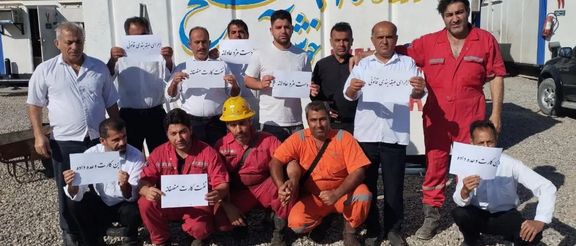
Over 8,000 oil project workers across more than 60 contracting companies have launched a strike throughout various regions of Iran.
The strike, which began this past Wednesday, was organized by the Council for Organizing Oil Contract-Workers' Protests, demanding changes including wage increases and a more humane work schedule.
In recent years, Iran's oil and gas industry has increasingly substituted regular employees with contract workers, subjecting them to tough working conditions and low wages.
The striking workers are not only challenging their immediate labor conditions but are also advocating for broader reforms in the industry, emphasizing the necessity for improved dormitory conditions and enhanced safety measures in the workplace.
These protests are part of a larger trend of increasing labor unrest in Iran, where workers have been consistently voicing their grievances over delayed wage payments, low wages, arbitrary layoffs, and the negative impacts of privatization policies.
Compounding the tensions, protesting workers have been receiving threatening text messages from supporters of the contractors, a move seen by many as an attempt to suppress the growing dissent, according to Alireza Mirghaffari, a member of the board of the Supreme Council of Labor Associations.
Over the last six years, the value of Iran's national currency, the rial, has plummeted by fifteen times, leading to rampant inflation and widespread poverty among millions of Iranians.
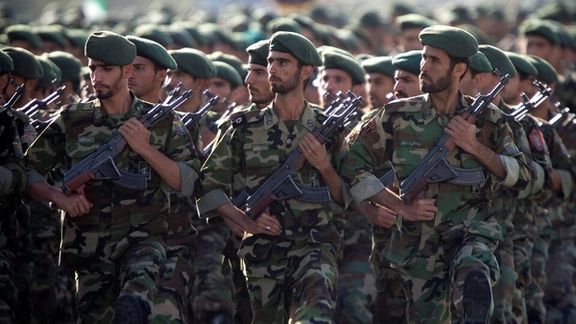
The Canadian government's designation of the Revolutionary Guard (IRGC) as a terrorist entity provoked diverse reactions from Iranians: the authorities expressed profound outrage, while many citizens welcomed the decision.
Shortly after the announcement, the Canadian Foreign Minister advised against travel to Iran, citing increased risks of arbitrary detention for Canadians.
The Iranian Foreign Ministry Spokesman, Nasser Kanaani, did not mince his words, denouncing the move as 'disgusting' and an irresponsible and "provocative continuation of Canada's longstanding policies." Similarly, Kazem Gharibabadi, Deputy for International Affairs of Iran's hardliner Judiciary, did not hold back, labeling Canada’s decision as 'hostile' and emphasizing the IRGC's importance for Iran's national security and regional anti-terrorism efforts.
Iran's Foreign Ministry summoned the Italian ambassador, who represents Canadian interests in Tehran, to protest Ottawa's decision, condemning the move as "unlawful and internationally illegal."
Meanwhile, the Iranian community in Canada rejoiced, having played a pivotal role in pressuring the Canadian government to designate the IRGC, driven notably by families of the victims of flight PS752, which was shot down shortly after departing Tehran's international airport in January 2020.
Hamed Esmaeilion, a Canada-based activist who lost his family aboard flight PS752, told Iran International that designating the Guards sends a supportive message to Iranians worldwide and provides a sense of justice to families of IRGC victims.
Ardeshir Zarezadeh, director of the International Center for Human Rights in Canada, remarked that this is a significant step because "the IRGC, rather than the government, is the principal power" in Iran.
“This move is likely to prompt more countries to add the IRGC to their terror lists, further restricting trade and diminishing IRGC's influence,” Zarezadeh told Iran International.
Numerous Iranians worldwide also voiced their jubilation through voice and video messages to Iran International, urging more countries to follow suit.
The psychological impact on people close to IRGC members was noted by one individual, who pointed out that "even within their own families, the IRGC elements are not respected", and even more so now if they lose the prestige of money and a Canadian visa.
Another described Canada's move as a "turning point," eliciting joy among more Iranians worldwide.
According to another individual, this step “may be the catalyst for European nations to classify the IRGC as a terrorist organization and impose sanctions on them.”
Despite this, some individuals were content with the move but more pessimistic in their outlook.
A citizen remarked on the "formidable influence of the IRGC", questioning whether the designation as a terrorist organization, despite being a positive step, would bring about substantial change, pointing to Hamid Nouri's release from prison in Sweden, the individual underscored that the IRGC operates akin to a “global mafia, interacting extensively with security institutions worldwide.”
Hamid Nouri, a former Iranian official convicted of war crimes, was exchanged in a prisoner swap between Sweden and the Islamic Republic earlier this month.
Critics denounced the Swedish government's actions as "dangerous". They warned of "far-reaching consequences," asserting that such measures bolster Iran's strategy of diplomatic hostage-taking, resulting in numerous dual nationals being incarcerated in Iran without clarity or resolution.
The designation also sparked international calls for action, especially from Australian senators who have criticized their government for its reluctance to consider listing the IRGC.
Yet, governmental decisions on this matter have been shaped by endeavors to mollify Iran amid its nuclear program, as exemplified in the EU and the UK. Still, they have imposed targeted sanctions against Iran for its destabilizing activities and proliferation of weapons.
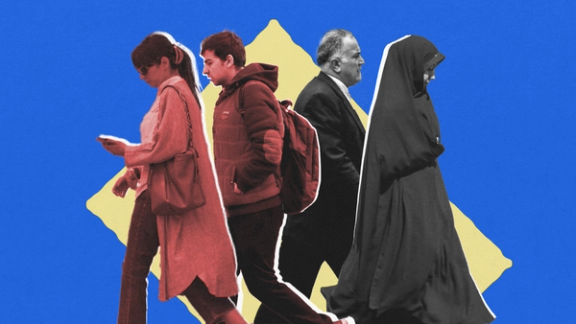
Iranians can vote for a new president on June 28, after the death of Ebrahim Raisi in a helicopter crash last month. How many will vote, we just don’t know - a report from Tehran.
Turnout was over 80 percent in 2009, but it dropped below 50 percent in 2021. This time, it will likely be closer to the latter than the former. Just how close, whether higher or lower, is hard to predict. However, two things can be said with almost certainty: first, Islamic Republic officials will label it a ‘glorious’ election, regardless of the turnout, and second, many millions—possibly a majority—will abstain from voting.
"We once thought there was a glimmer of hope,” says Zohreh, 36, who is trying to launch a tiny catering business from the kitchen in her apartment. “We thought things would get better if we kept voting for the least bad candidate, anyone even slightly better than the hardline fundamentalists. But now we know better.”
In May 2017, the ‘moderate’ incumbent, Hassan Rouhani, won his second term as president, riding high on widespread optimism in the wake of the 2015 nuclear deal –a deal he had vowed to get in his first election campaign in 2013. Standing for reelection, Rouhani spoke of a better future with moderate Reformists, and many believed him. His promise turned out empty six months later, however, leaving many Iranians full of rage, those struggling financially in particular. In December 2017, these took to the streets across Iran, chanting a new, momentous slogan: "Reformists, Conservatives, the Game is Over."
Up until then, Iran’s polity was characterized by and viewed as a never-ending power struggle between two broadly defined camps: those seeking reform and those sticking to the theocracy’s founding ‘principles’ (hence the term Principlist). The two forces dominated Iranian politics until that fateful winter, when the protesters made it clear that they no longer believed in this dichotomy; that they saw them as two cheeks of the same backside that had to be kicked.
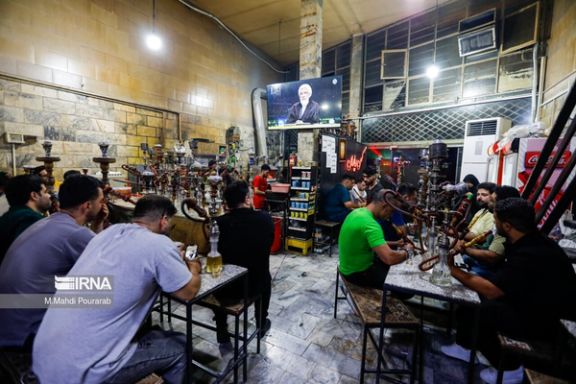
Zohreh is typical in this sense. She used to vote “until 2017”, she says. But the way the “supposedly moderate” Rouhani treated the protestors made her think twice. And then came the “double crimes” in November 2019, when hundreds of impoverished Iranians were shot dead for daring to protest against a sudden rise in gasoline prices. In January 2020, the Revolutionary Guard shot down a Ukrainian passenger plane over Tehran, killing all 176 onboard. These were the “final nails in the coffin”, Zohreh says. She lost all hope in ‘reform’. The game was over for her.
“I’m surprised that some still believe in change through the ballot box and encourage others to do the same,” she adds. “For me, taking part in elections has lost all meaning. But I don’t argue with those who see some benefit in voting. I think everyone should be left free to act according to their judgment.”
When first heard in 2017, the “Game is Over” slogan was truly radical. Not many believed in it, and even fewer were willing to say it out loud. However, it quickly resonated with people and became a self-fulfilling prophecy, relieving the state of the burden to maintain its facade. In the parliamentary elections of 2020, the presidential vote of 2021, and the March parliamentary elections in 2024, ‘moderates’ regime insiders were purged. While different groupings and faces remained, they were all "soldiers" on one front, displaying absolute loyalty to their supreme leader, often referred to as "the System."
Unsurprisingly, voter turnout plunged, reaching historic lows of 40 percent –and as low as half that in larger cities. But that trend can change on June 28. The snap election seems to be drawing some interest, however minimal, mainly from those who feel they still have a lot to lose.
“I was sure I wouldn’t vote until a few weeks ago,” says Pouria, 43, who has a relatively well-paid job in the private sector. “But I’m not so sure now. I’m going to watch the debates and see what the candidates have to say before making a decision.” Pouria has voted only twice, in 2009 and 2017, on both occasions for the ‘Reform’ candidate. He says he’s been “pleasantly surprised” that a “moderate” has been allowed to stand.
The ‘moderate’ is Masoud Pezeshkian, a surgeon, former health minister and multi-term lawmaker. He has energized the career ‘reformists’ who have been pushed aside to the point of irrelevance by loyalists of Supreme Leader Ali Khamenei, but still surface every election to arrogantly remind people that they’re still the only hope to challenge the hardliner hegemony. They seem untroubled by the fact that the candidate they’re claiming as their own is all too careful not to be associated with them. Not only that, but he has also proudly confirmed that he’s just another ‘soldier’ and cannot be expected to affect much change.
Still, some like Pouria feel that Pezeshkian may be worth their vote. They have no “illusion” that he can “improve” their lives. They just hope that he can at least “slow” the nation’s downward march towards “total misery”. But even this seems to be a minority view. Pouria says he doesn’t feel comfortable telling his friends that he is “undecided”, fearing they might distance themselves from him. “They say the regime's intentions are clear,” Pouria says. “They think Pezeshkian is just there to improve the recent abysmal turnout. And so, they view voting as collusion with tyranny.” But for Pouria, “it’s not a moral question.” He prefers to be “pragmatic”, especially as he believes that “revolution or overthrow is impossible” now.
This line of reasoning has previously carried some undecided or reluctant Iranians to the polling stations. There are still some activists who argue this case, trying to convince others not to “forgo” their choice.
“The lets-vote crowd prefer to ignore the fundamental questions,” says Maryam, visibly irritated. She is 28 and works as a PE teacher at a middle school in Tehran. "Their ‘bad vs worse’ argument is so expired,” she says. “Why should we vote again? Did they not block all avenues for change the last time we voted? Did they not appoint ministers and reduce the president to a mere butler? Did they not kill children to remain in power [in 2022]? Where are the signs that this time our vote can change anything?”
Maryam jokes that she ruined her day with my questions. There’s very little appetite for these conversations. It’s no more like pre-2020 when friends tried to convince one another to ‘take part’ or ‘boycott.’ Heated debates, very common until a few years ago, are almost non-existent. Most people seem to have moved on from elections as a means of change. For the young, the penniless, and the women, above all, who face the brunt of the Holy System every day, that game seems to be well and truly over.
A US official told Reuters that the claim by the rebel group is false, and no such attack has been carried out.
On Saturday, the Yemeni Houthi group announced that its forces had launched attacks on the US aircraft carrier Eisenhower in the Red Sea and the "Israeli-linked" Transworld Navigator ship in the Arabian Sea.
The exact timing of the attacks was not specified.
According to a statement from the Houthis, the Transworld Navigator was struck directly by a missile.
The group also declared that the operation targeting the Eisenhower had successfully met its objectives, though further details were not provided.
The Houthis' claim comes on the same day as the US Central Command has announced the return of the Eisenhower Carrier Strike Group (IKE CSG) to the United States.
"After flying over 30,000 hours and sailing more than 55,000 miles, the IKE CSG has shown our dedication to regional stability and safeguarded freedom of navigation across the Red Sea and Gulf of Aden," the command stated in a tweet on Saturday.
The Houthis have increased their maritime assaults, including the recent sinking of the ship Tutor, marking a new phase in their strategy against international shipping routes since the beginning of the Israel-Hamas conflict in Gaza.
The attacks began after Iran's Supreme Leader Ali Khamenei called on Muslim nations in early November to blockade Israeli trade in the wake of the Gaza war.
The Houthis claim over 60 targeted attacks on vessels and numerous other missile and drone launches since November, leading to the deaths of four sailors and the capture or sinking of several ships.
connected to Israel, the US, or Britain, many of the attacked ships reportedly have minimal or no links to the Israel-Hamas war. In response, a US-led airstrike campaign has been targeting Houthi positions since January.